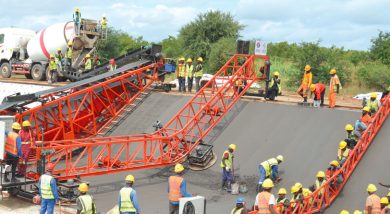Youthwyze mobile App, hope for the youth
Lack of information about sexual and reproductive health and rights (SRHR) make it difficult for young people in the country to access to reproductive health services.
Health professionals have outlined challenges in reaching the youth with comprehensive sex information due to unfriendly health services, unfavourable policies and poor parent-child communication, among others.
For example, Sexual, Reproductive Health and Rights Africa Trust (SAT) country programme officer Novice Bamusi says youth have found themselves in preventable predicaments such as unwanted pregnancies and sexually transmitted infections, including HIV and Aids, due to lack of knowledge on preventive measures.
Statistics show that nearly half of the girls in Malawi marry before turning 18 and 37 percent of young women aged between 15 and 19 have completed their primary education.

In addition, an analysis of the HIV and Aids pandemic in Malawi presented by Reno Stephens of the Centre for Disease Control and Prevention in February 2023, found that Malawi has made significant progress towards UNAIDS 95-95-95 targets, yet awareness of HIV status is at 88.3 percent and lowest among young people, 15-24-year-old (76.2 percent).
The study found that low awareness of HIV status contributes to further transmission in the population, hence the need to better understand HIV testing history and transmission in this youthful age group.
“These findings highlight gaps in HIV testing among young people by age and sex with the majority (more than 95 percent) of those infected potentially having been infected in more than 12 months,” it reads.
To close this gap, SAT has come up with a mobile application called Youthwyze tailor-made to provide the youth with resources, guidance, and community support through insightful articles, interactive topics, and expert tips.
The technology launched in July 2023, and piloted in Blantyre and Lilongwe has reached more than 1 000 young people in the two cities.
“This innovation is here to stay and we are impressed with the progress so far. We plan to reach young people across the country through this application and hopefully, we will get the financial and technical support that we need,” says Bamusi.
SAT Youth Programmes intern Peace Ndoya hints that there is a lot of information on sexual reproductive health and rights, mental health as well as HIV and Aids on the digital hub.
She explains: “This application can also be used as a research tool as one can upload a survey and get responses from the participants, it also works as an advocacy tool and a platform to report gender-based violence.”
The App has four features, the Near Me which provides mapping, and directs users to the nearest health facility around them, the Youth Speak, which allows the youth to give feedback on how the service was delivered and the Chat which is more like a community interactive platform for young people.
It also has the We Ask You which allows the youth to pose questions on SRHR to professionals.
“Basically, what we are trying to do is provide access to information, we know that when one is well informed, they are able to make informed decisions,” says Ndoya.
According to Bamusi, when there is feedback that a youth was not treated well by a service provider, SAT calls for a round table discussion with both sides and where need be, other mediators such as government representatives or the employer of the service provider are called to intervene.
They are also working with the police to address some of the challenges faced by the youth at community level.
“The setback with the application is that not everybody is using a smartphone. We are exploring other ways of trying to address that moving forward but so far so good,” says Bamusi.
The initiative is running in several countries within the Southern African Development Community (Sadc) and a total of five million youths have been reached in the 13 countries it was piloted in.
“We are also doing a lot of advocacy on the current HIV prevention methods being promoted by the government. We are aware that young people are among those registering high numbers of new HIV infections, we are raising advocacy, moving to reach as many as we can,” he adds.
HIV and Aids activist Deidre Madise hails SAT for the innovation, adding that neglecting the youth in the fight against HIV is a disaster as Malawi can lose an entire generation.
“We know what is happening with our youths, especially in our colleges, if this generation is left unchecked, we will have challenges attaining the 2030 goals,” she said.
Sixteen-year-old Ruth Banda from Lilongwe says she uploaded the App the first time she heard about it and no longer depends on her peers for SRHR information.
“Some of the information we get from our friends tends to be misleading. This App is a hope for my generation,” she states.





